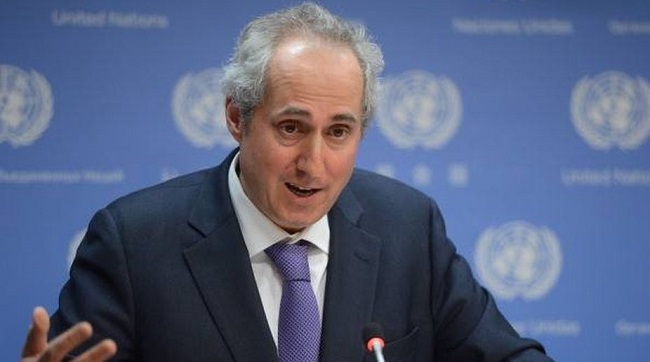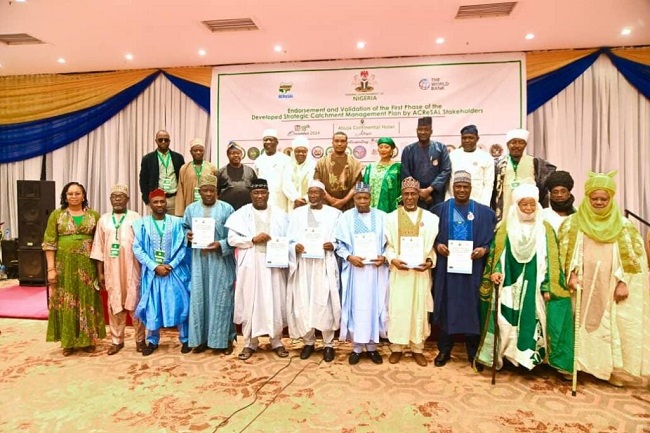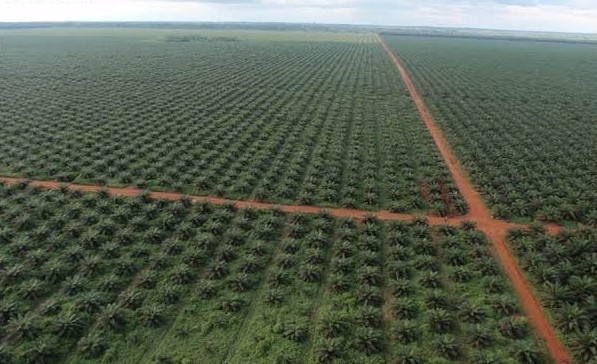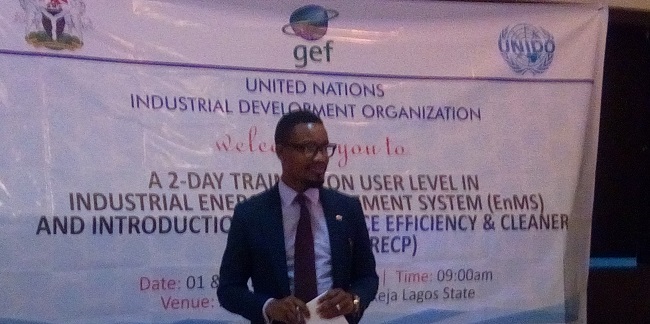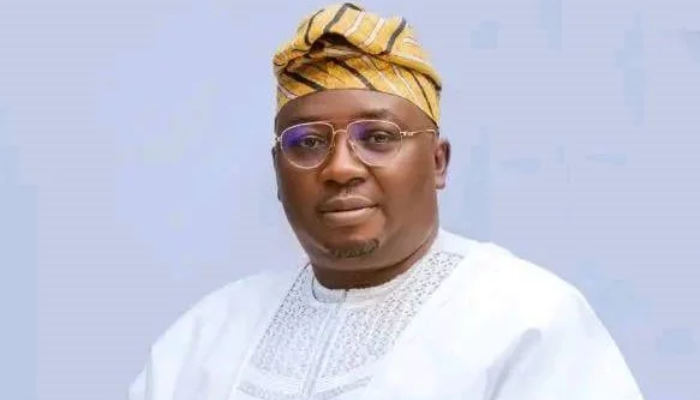Space technology, which involves activities in outer space, dates back to 1957.
Nigeria’s space programme, launched in November 1999 under President Olusegun Obasanjo, aimed to tackle humanitarian challenges, disaster management, and socio-economic development.
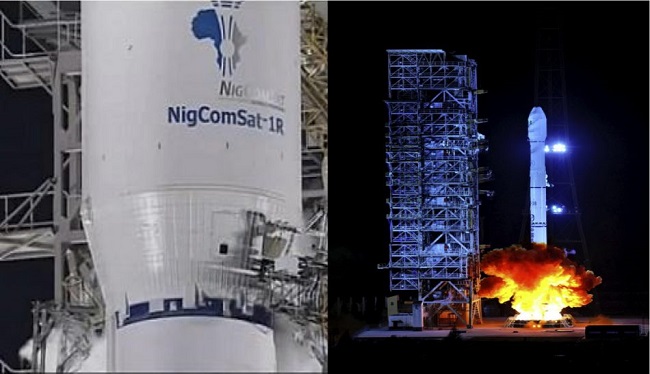
To achieve this goal, the National Space Research and Development Agency (NASRDA) was established.
Shortly after, the National Space Policy was approved in 2000, followed by a 25-year roadmap in 2005.
This roadmap resulted in the launch of six satellites: NigeriaSat-1, NigComSat-1, NigeriaSat-2, NigeriaSat-X, NigComSat-1R, and Nigeria EduSat-1 between 2003 and 2017.
Thus, making Nigeria the first African country to successfully launch satellites into space.
Prof. Spencer Onuh, a space engineer, recently emphasised the importance of initiating Nigeria’s space programme at the time, which enabled the training of scientists and engineers in developed countries.
According to Onuh, the space programme has created huge employment opportunities and positioned Nigeria as a contributor to the Disaster Monitoring Constellation, which the UN occasionally activates.
However, Onuh noted that funding remains a major global challenge for space programmes.
In Nigeria’s case, he argued that policy derailment also contributed to stagnation.
“The challenge is not just money; it is policy derailment, the roadmap was developed, but the government lost focus, the commitment present at the beginning was not sustained.
“We derailed after the launch of NigeriaSat-2 and NigeriaSat-X in 2011. Up to that point, we were following the roadmap.
“The programme to have an astronaut in space would have been concluded by 2020. The space policy included the Assembly, Integration, and Testing Laboratory (AITL) facility. You cannot manufacture satellites without an AITL facility.
“When we started the national space programme, the goal was for Nigeria to design, manufacture, and launch satellites within the country. For now, we can design, but we cannot fully manufacture or launch”.
He further stressed that relying on annual budget allocations is insufficient because a space programme is a critical national infrastructure.
Onuh also noted that Nigeria loses over two billion dollars annually due to capital flight related to imagery and data acquisition.
In addition, many of the satellites have outlived their lifespan and have been deorbited.
Similarly, Prof. Augustine Chukwude, an executive member of the Astronomy Society of Nigeria (ASN), explained that NASRDA’s establishment consolidated existing space education initiatives at universities such as the University of Nigeria, Nsukka (UNN).
Chukwude underscored the importance of understanding basic space science and concepts such as the space environment and traffic management for successful satellite operations.
“If you want to launch a satellite, you need to go through basic space science. You must understand the space environment where the satellite will be deployed.
“With many countries launching objects into space, space traffic management is crucial to avoid collisions.”
He also pointed out that space research products are among the most expensive globally, and countries often rely on internal capacity development.
“No nation will sell you such knowledge, no matter what you pay. Nations must start with short-term, medium-term, and long-term plans, using available resources to hire experts when needed.”
Chukwude emphasised the need for NASRDA to strengthen its partnerships with universities to enhance space research and develop actionable policy documents.
Using the Department of Astrophysics and Astronomy at UNN as an example, he noted that many young scientists trained abroad do not return due to the lack of functional research facilities in Nigeria.
“Most of our young people leave because when they return after completing their Masters or PhD programmes, there are no facilities to work with.
“Currently, the country does not have any major functional observatory equipment, whether optical or radio telescopes.
“For example, during my PhD, I used a 25-metre radio telescope in South Africa in 2002, that equipment is now obsolete, yet Nigeria still lacks comparable facilities”.
Retired Brig.-Gen. Michael Agu, pioneer Chairman, Nigeria Institution of Space Engineers (NISEng), outlined the space industry’s scope, covering infrastructure, products, services, economy, and workforce.
Agu praised NASRDA for its progress in space infrastructure and workforce development but stressed the need for greater government support to advance space products and services.
“I know NASRDA has the requisite manpower to roll out space products, including satellites. They have all the necessary building blocks to take the industry to the next level.”
He commended NASRDA’s leadership for maintaining a system where Director-Generals emerge from within, ensuring continuity and familiarity with space-related activities.
However, Ms. Yinka Fagbero, Founder of the Astronomy Without Borders Foundation, attributed Nigeria’s sluggish growth in the space sector to the government being its sole operator.
“Space programmes are capital-intensive. Without adequate funding, even the best ideas cannot be translated into tangible projects.
“We should be launching satellites annually or every other year. Before one satellite expires, another should already be in place. There must be continuity.”
Dr Anne Agi, President of Learn Space Foundation, noted that in spite producing new space scientists, Nigeria still relies on foreign expertise and infrastructure.
“The National Space Policy aimed for indigenous satellite design and launch, but this vision has not yet been fully realised.
“Complex regulatory frameworks and inefficiencies in policy implementation have hindered progress.
“There is also limited public awareness about the benefits of space technology, which affects support for space initiatives.
“Space science is still viewed as a niche field with minimal recognition of its contributions to national development,” Agi said.
Experts have outlined several recommendations to reposition the space sector, emphasising collaboration, innovation, and strategic investments.
To begin with, they stressed the importance of fostering strong Public-Private Partnerships (PPP) to attract funding and enhance the sector’s growth.
In addition, they called for greater collaboration among space-related institutions to maximise resources and expertise.
As part of the proposed interventions, they highlighted the need to establish an AITL alongside other critical initiatives to advance the industry.
Focusing on regulatory reforms, Agi underscored the importance of simplifying regulations to encourage private sector participation and drive innovation.
She also recommended the commercialisation of NASRDA’s research outputs, which could translate scientific advancements into practical applications that benefit society.
Furthermore, Agi emphasised the urgency of developing local expertise and infrastructure, expanding educational programmes, strengthening international collaborations, and raising public awareness.
“We must increase outreach efforts to highlight the benefits of space science and garner greater public and governmental support,” she said.
In a similar vein, Onuh advocated for a comprehensive overhaul of the space programme, citing the urgent need to replace Nigeria’s ageing satellites.
He also stated out that monitoring weather, particularly cloud cover, should be prioritised.
Additionally, he emphasised the need for a new meteorological satellite and the replacement of communication satellites nearing deorbit.
“The government must commit to revolutionising the space programme for the country’s benefit,” he added.
Chukwude, however, proposed a robust space development strategy focusing on foundational initiatives such as basic space science education and the promotion of space-related fields like astronomy.
He urged NASRDA to secure government support for the installation of a 30-metre telescope, arguing that it would significantly enhance Nigeria’s global standing.
“With such a telescope, Nigeria could link up with Europe and Asia, enabling high-resolution global observations,” he added.
By addressing these key areas, the experts believe Nigeria can unlock the full potential of its space sector and position itself as a leader on the global stage.
By Ijeoma Olorunfemi, News Agency of Nigeria (NAN)

